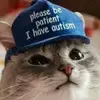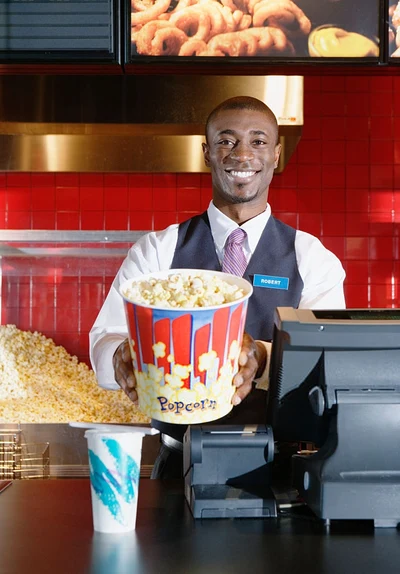I'm sure most of you are aware of or have seen at least one version of Blade Runner. Some of you might not be aware that there are at least five different versions of the film that range from minimal to dramatic differences in tone and pacing, for instance, the theatrical release contains a voiceover dub from the perspective of replicant hunter Deckard, while many of the subsequent cuts do not.
Since the film's initial release, there has always been an argument among fans as to whether or not Deckard is himself a replicant, provided memories (much like the character of Rachael), and sent to hunt his kind. There were always minor ambiguities that could reasonably lead a person to consider this as a possibility, though in the initial theatrical cut, as well as most of the other releases over the years, it's only ever vague conjecture.
About a decade ago, Ridley Scott released the "Final Cut" of the film, which incorporated stock footage from an entirely different film of a unicorn, and the way this footage is cut implies that Deckard dreams of this unicorn regularly. Later, the character Gaff, another detective and minor antagonist of Deckard, places an origami unicorn in Deckard's apartment. The implication clearly being that Gaff somehow has knowledge of Deckard's dreams, which could only be the case if he were briefed on the memories that make up Deckard's "programming". When asked about the possibility of whether Deckard is a replicant, Scott enthusiastically agreed, stating that this was ALWAYS his intention, much to the confused headshaking of every other member of the cast and writing team.
Honestly, if you consider Deckard as a replicant for even a moment, the entire philosophical POINT of the film is ruined. We NEED Deckard to be human because his lack of emotion and "humanity" at the beginning of the film is exactly what he is taught to appreciate by the "andy" Roy who saves him in the end of the film. Essentially, Roy becomes "a real life boy" by choosing to save Deckard, truly becoming "more human than human" (it's not just a company slogan; IT'S THE POINT OF THE FILM). If we don't have that interesting component of empathy and grief and loss that Roy, an android struggles with and eventually achieves, and if we also don't have the re-awakening of Deckard's own humanity, his renewed appreciation for life and its impermanence, we don't have a fricking movie.
God I (sometimes) hate Ridley Scott.









Jump in the discussion.
No email address required.
The idea of events occurring in one tense and the description of it occurring in another in order to cause something to be true or not true in retrospect is analogous to a movie being re-released plus or minus a key scene that causes the entire story’s meaning to change; but if those releases had been presented in the reverse order, the meaning stays the same, but the purpose becomes repressed. So when someone asks, “which version of Blade Runner is better?” the answer is tricky: you have to see them both.
The usual question of Blade Runner is whether Deckard is a replicant, and while it’s pretty clear from the director’s Final Cut version, not to mention his larynx, that he is, the more interesting question is when did you know to ask?
In the 1982 theatrical release of Blade Runner, there's a key scene that was filmed but was cut out, leaving the movie's underlying question of what Deckard “is” not just unanswered but unasked; the theatrical audience did not know there was a question to be asked. In the 2007 release of the Final Cut, this scene is put back in-- the answer is given to a question that hadn’t been asked. So in the theatrical release, what was repressed? The question or the answer?
In the ending of both versions, Deckard flees his apartment with the replicant Rachael, and he sees on the floor an origami unicorn. In the theatrical release, helpfully reinforced by a voice over, this means that known replicant hunter and origamist Gaff had been there. The purpose of the origami was as a message to Deckard that Gaff spared Rachael (because Deckard loved her).
In the 2007 Final Cut version is an “extra” scene which had been removed from the 1982 theatrical release: Deckard dreams about a unicorn. Now the Final Cut’s origami unicorn has a totally different meaning: Deckard realizes Gaff knows his dreams, because Deckard is a replicant. The deletion of the dream scene in the theatrical release therefore had repressed the entire question of whether or not Deckard was a replicant.
Take special note: though the dream scene is what was cut out from the theatrical release, the dream scene itself doesn't mean anything. It's deleted, but it isn't repressed. It's the origami that means something; the origami means Gaff knows Deckard's dreams, because Deckard is a replicant; the origami’s meaning is repressed by deleting the dream.
...
There is a crucial psychological difference between repressing the question of what you are and repressing the answer of what you are, and this difference is depicted in what Deckard does when, in the Final Cut, he sees the origami and realizes he's a replicant: nothing. Deckard has no problem accepting that he’s a replicant. Well, wait a second, why does he have no problem accepting it? Even Neo gets nauseous after the Red Pill, but Deckard switches so fast there isn’t time to discharge the capacitors. Where’s the existential dread and “no one can tell you who you are”?
He has no problem because, like the audience, he never wondered what he was. What he knew changed, but there was always a 1 in the knowledge column, never a zero. If something made him wonder in Act I-- not told him he was/wasn't a replicant, but forced open the question-- that uncertainty would have changed him, and the movie would be completely different because everything that he did would be about him wondering. By always knowing-- even when what he knows is wrong, and even when what he knows completely reverses-- does not change him. The 1 in the knowledge column never changes.
In other words, what’s removed isn’t what Deckard is, from the theatrical version; what is removed is doubt, from both versions. Deckard never wrestles with the question of what he is. But neither do any of the other replicants. The vital question for all the characters is not “what does it mean to be” human vs. replicant, but being alive vs. dead; and it is this consistency that makes replicants most like humans; strike that, I mean humans most like replicants.
It goes on, as you would imagine
Jump in the discussion.
No email address required.
I rather disagree with both of these statements. Rachael most certainly wrestles with the question of what she is-- that is her central conflict. Roy and the rest of the rogue replicants also wrestle not with the question of human versus android, but certainly with the limitations imposed on them because of what they are. Deckard, while never grappling with a question of WHAT he is, seems to definitely come to terms with WHO he is, or rather, what kind of man he wants to be, by discovering his empathy and then love for Rachael. He feels for these "people" by the end, and I think that if any part of the story centers the question of WHAT Deckard is, they miss the more important aspects of his change.
Jump in the discussion.
No email address required.
Immediately following the passage I quote:
Jump in the discussion.
No email address required.
But you didn't say what you quoted in your first post?
--
I'm not sure I'm following your argument, so tell me if i'm getting this right-- are you saying that Deckard doesn't know what he is (human or replicant) but that it doesn't matter because he knows who he is (Deckard, the man)? And that his lack of response or action in finding that confirmation in the form of the unicorn doesn't run counter to his earlier incredulity at what Rachael was (when he asks Tyrell "how can they not know what they are")?
I definitely follow and agree that the order of the question or whether it's asked at all in a direct way certainly can change the tone and implied meaning of a lot of the story and the characters, but I'm not exactly following if you are saying it doesn't matter or not?
Jump in the discussion.
No email address required.
The whole thing is a quote. You think I typed all that shit?
He knows what he is in the first movie - a human. He knows what he is in the second movie - also a human, until the end, when he knows he's a replicant. (I haven't actually seen the second movie). The key moment, anyways, is when deckard and the replicant that was chasing him meet, and the replicant tries to show that deckard deserves it, because this is what he puts replicants through. That whole scene has the obvious reply of "well humans and replicants are different, so it doesn't count". If we then find out that deckard is a replicant, its like "woah, I guess they really are the same".
Jump in the discussion.
No email address required.
More options
Context
More options
Context
Just thought of something, and I wanted to write it down before I went to bed and forgot- if deckard is a replicant, any lessons we learn from him are kind of duplicated efforts, no? Meaning, his change as a character isn’t surprising or even that different from any of the replicants, because we have seen all of them grow and change within that mold. Only if he is human can we juxtapose and compare the path these characters travel, and the centrality of “what does it mean to be human” comes in to focus, at least for me.
Jump in the discussion.
No email address required.
More options
Context
More options
Context
More options
Context
still unemployed then?
Jump in the discussion.
No email address required.
I read that book while on the clock. Nice having a job where you don't do anything.
Jump in the discussion.
No email address required.
More options
Context
More options
Context
More options
Context